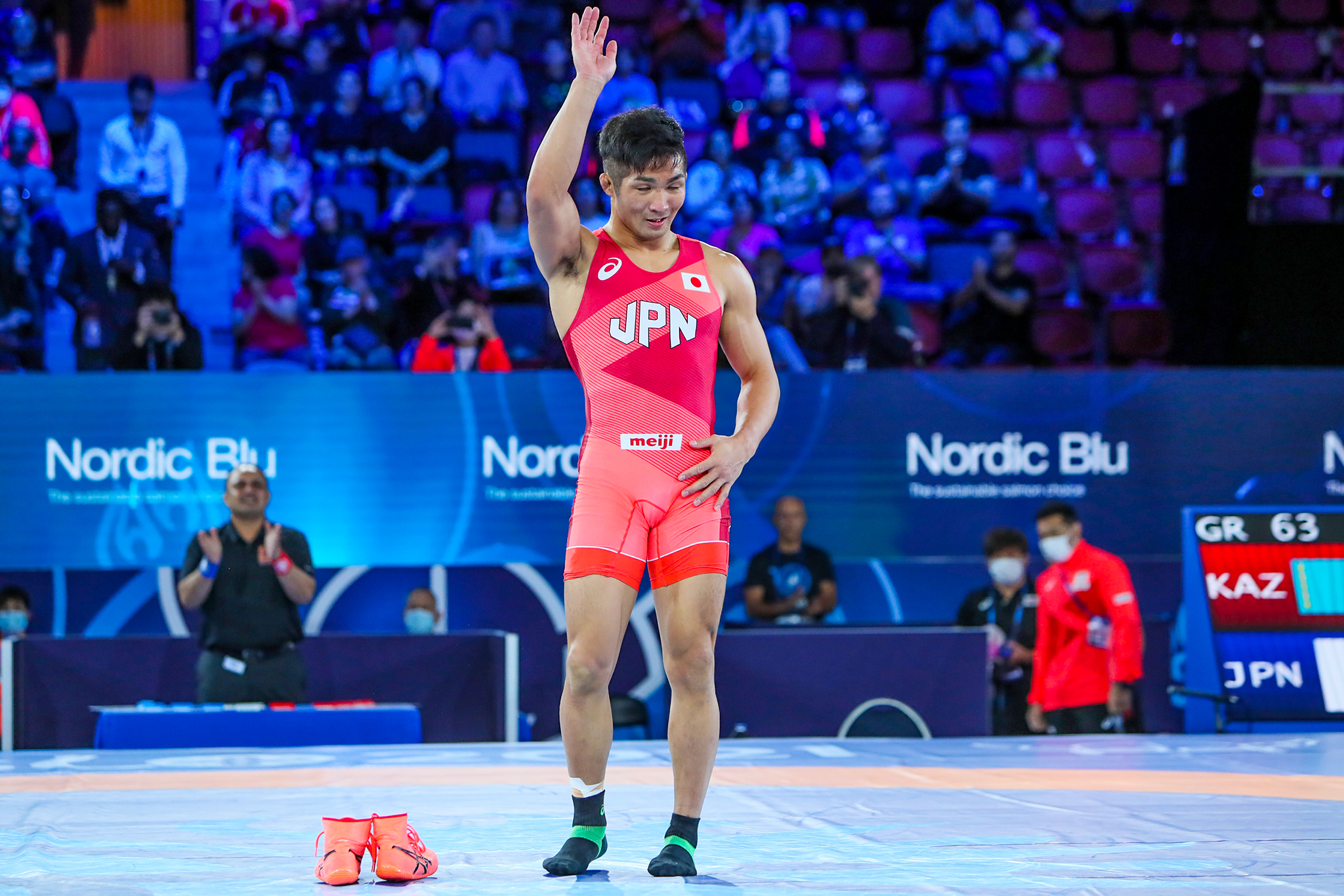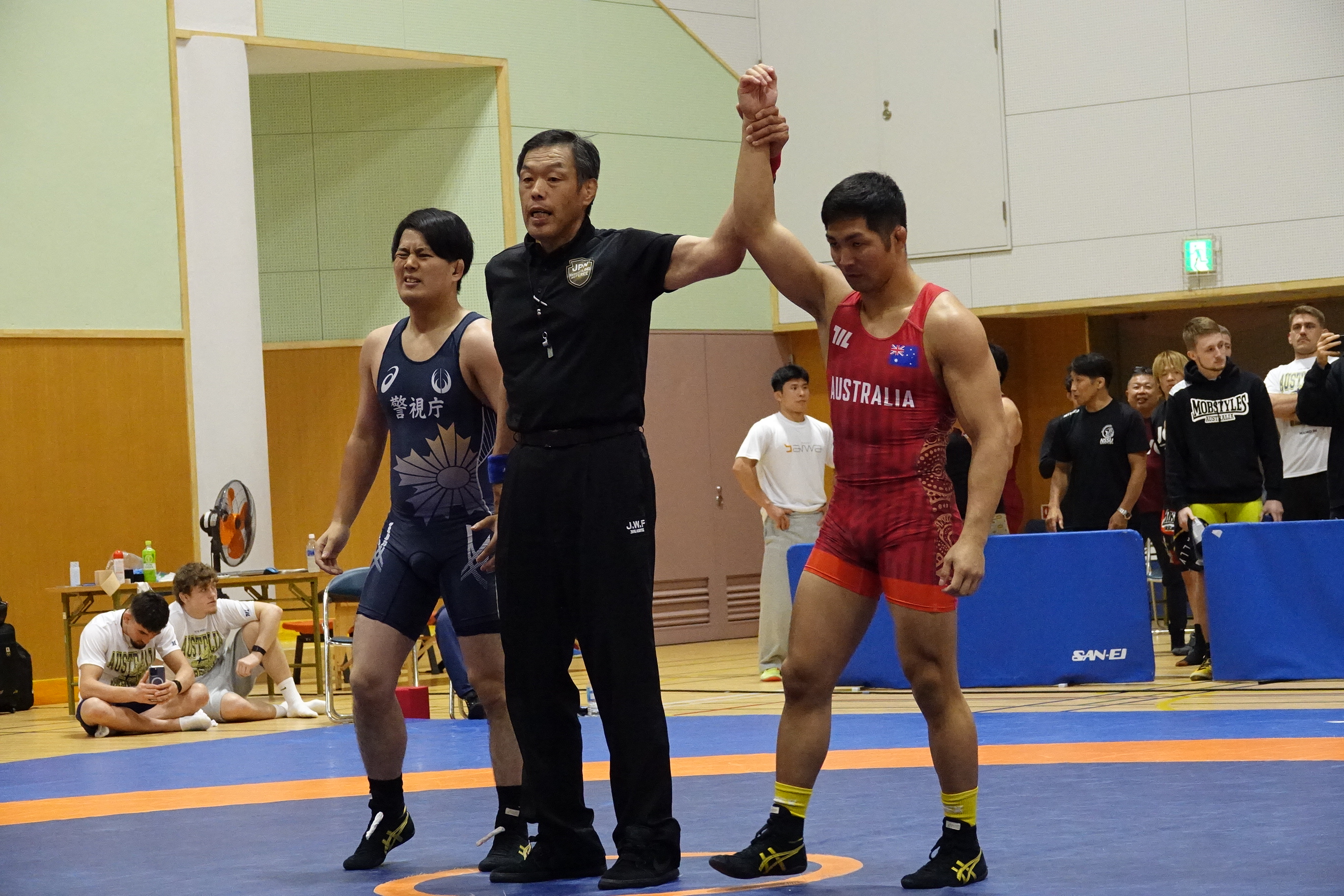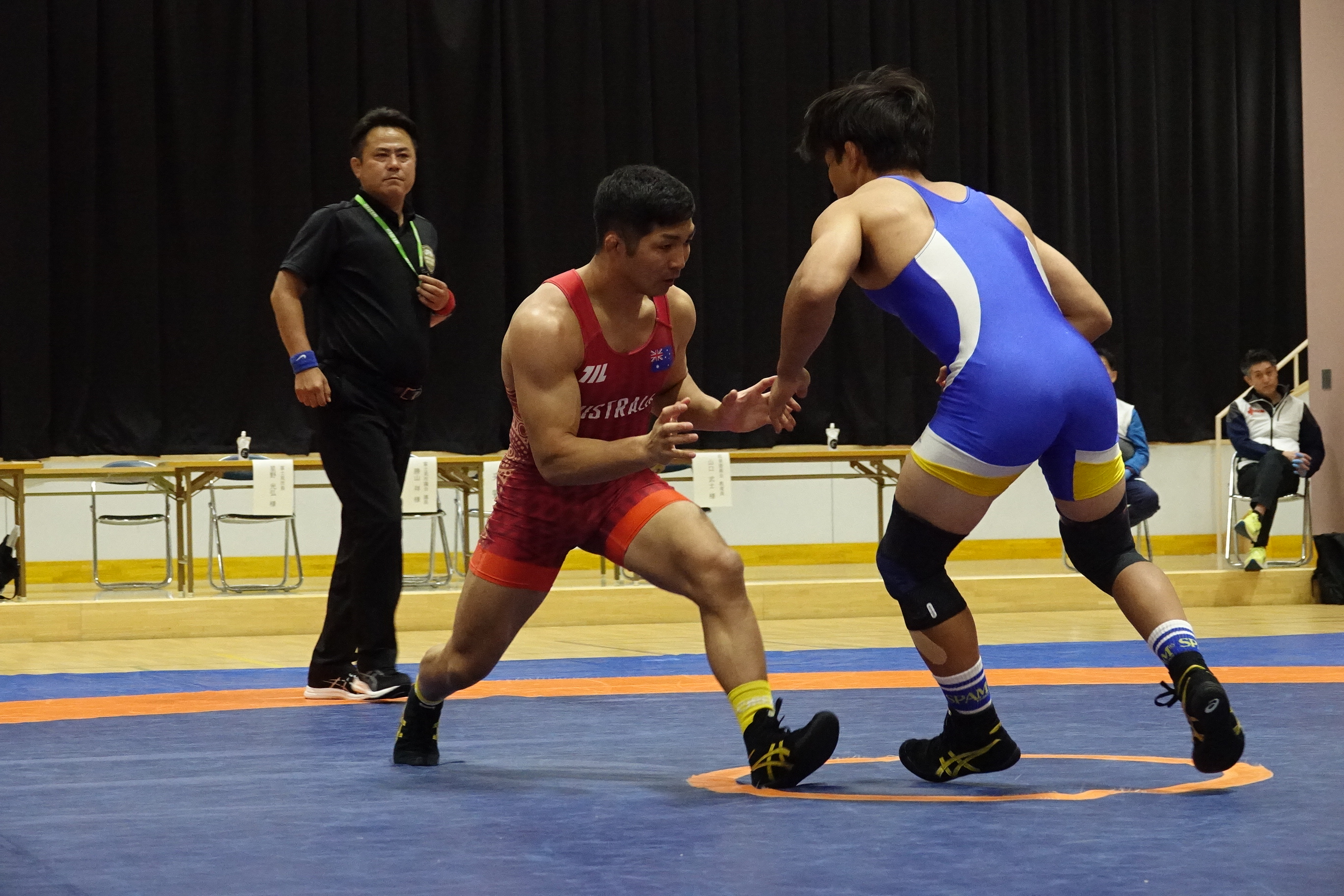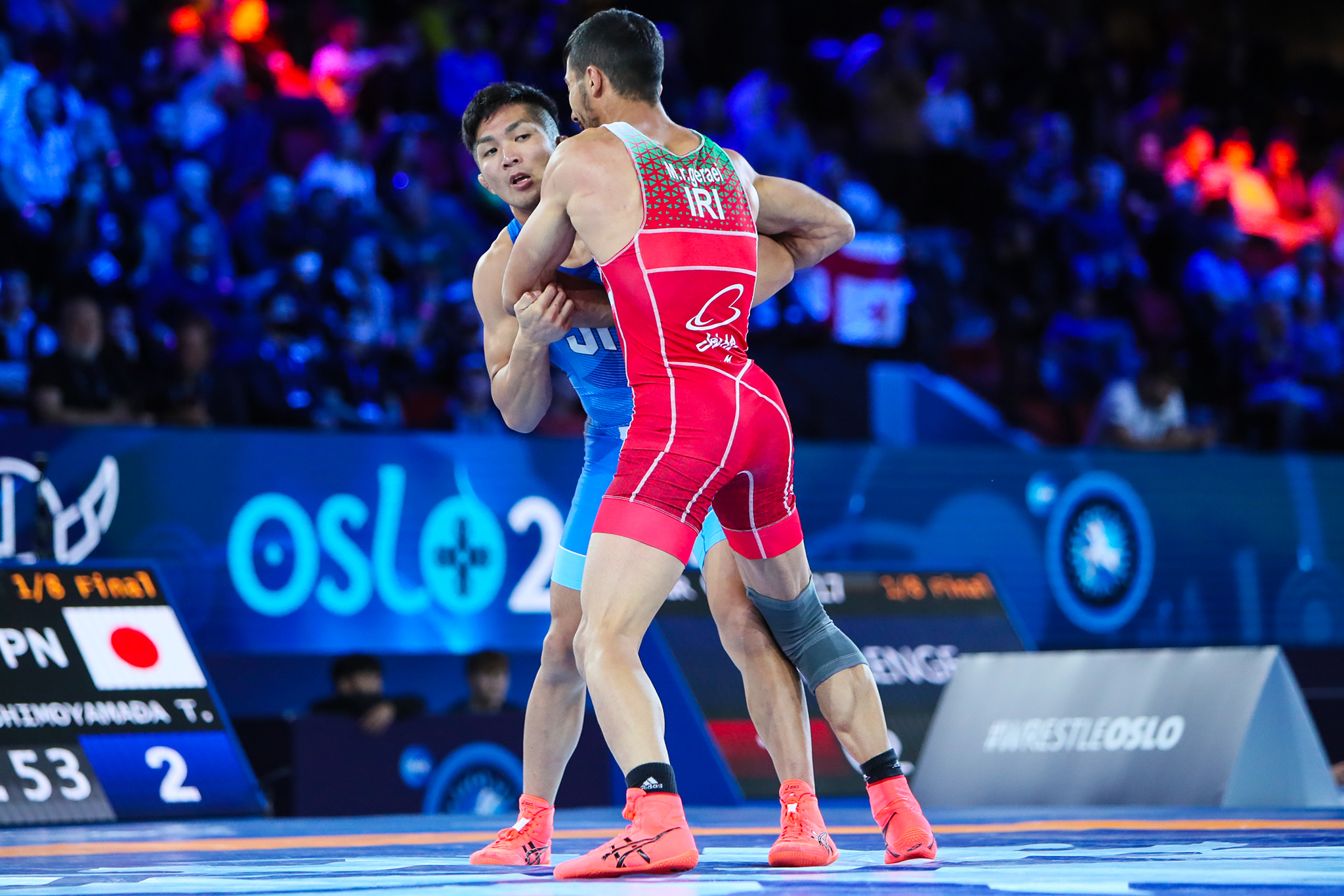Iran, USA share top honors at Zagreb Open
Wednesday, February 1, 2023 - 22:06 By Vinay Siwach

ZAGREB, Croatia (February 1) -- For those who watched Hassan YAZDANI (IRI) wrestle on Wednesday, the most difficult task would be to find a chink in his armor. Sure, Hayato ISHIGURO (JPN) managed to score a takedown on Yazdani using a powerful single leg to go behind. Barring that moment in which he was caught off-guard, Yazdani opened his season with a 44-2 routing of his opponents to win the gold medal at the Zagreb Open Ranking Series event.
In his first tournament since the loss to David TAYLOR (USA) in the World Championships final last year, Yazdani was at his usual calm on the mat and managed to run through the 86kg field in Zagreb.
The season-opening Ranking Series event is the first under the new rule of a two-kilogram allowance for wrestlers and offers prize money to the medal winners.
Yazdani, along with five other gold medalists, pocketed 1500 Swiss Francs while the silver medalists got 750 Swiss Francs. The two bronze medalists in each of the six weight classes got 500 Swiss Francs each.
Ishiguro, who surprised many by reaching the final at 86kg, opened the score in the final against Yazdani but as the Iranian continued his high-pressure, underhook dominated game, Ishiguro had no answers.
Yazdani scored via pushouts combined with two takedowns for a 7-2 lead. Ishiguro tried a bodylock, but Yazdani managed to counter it with a four before a double leg to win 13-2.
After the final, Ishiguro said that he tried saving his stamina against Yazdani which stopped him from giving his 100 percent in the final.

This was Iran's second gold of the night as Reza ATRI (IRI) won the 61kg gold over Narankhuu NARMANDAKH (MGL). While he only led 5-3 at the break, Atri dominated the second period and gave no chance to Narmandakh. He used an underhook to four to secure the fall in the final.
The USA also won two gold medals as Alec PANTALEO (USA) scored his second career win over Haji ALIYEV (AZE) and Jason NOLF (USA) impressed in his 3-3 win over World Championships bronze medalist Yones EMAMI (IRI).
At 70kg, Pantaleo faced Aliyev and rode high on confidence as he defeated Aliyev at the Polan Open Ranking Series event in 2021. Taking lessons from that bout, Pantaleo did not let Aliyev use the snapdown from the wrist and came out on top 5-2.
 Alec PANTALEO (USA) secured his second career win over Haji ALIYEV (AZE). (Photo: UWW / Kadir Caliskan)
Alec PANTALEO (USA) secured his second career win over Haji ALIYEV (AZE). (Photo: UWW / Kadir Caliskan)
While Pantaleo acknowledged the size and strength difference between him and Aliyev, who usually wrestles at 65kg, he said his skill set of Aliyev makes him very dangerous.
Pantaleo scored a takedown before an activity point gave him a 3-0 lead at the break. Aliyev managed to score a takedown early in the second period but his attempts to snap Pantaleo did not work. The American got two more points when Aliyev made a desperate attempt in the final few seconds.
Nolf's final against Emami at 74kg was much closer as his takedown in the second period proved to be the difference in the bout. He also made sure to not give up a takedown when Emami was pressuring him. Emami scored three stepouts which were not enough.
In the post-match interview, Nolf explained that in the past, he missed closing out tight matches so a win in such a bout was a confidence booster.

The first gold medal of the day went to Aliabbas RZAZADE (AZE), who ended the dream run of U20 world champion Yuto NISHIUCHI (JPN) by winning the final 2-0. Rzazade looked like the wrestler to beat in the weight class despite some hiccups on the way to the final.
He began with Wanhao ZOU (CHN) and came out of it with a 14-8 before beating compatriot Islam BAZARGANOV (AZE) 10-0 in the quarterfinal. He did survive a scare against Beka BUJIASHVILI (GEO) in the semifinals but managed to win 4-2.
Nishiuchi entered the final from the other side of the bracket with impressive wins over Darian CRUZ (PUR), Zane RICHARDS (USA) and U23 world champion AMAN (IND). He gave up points in all three bouts but scored a lot of his own as well.
But when the 18-year-old met Rzazade in the final, he failed to break the defense of the former U23 world champion. Rzazade got a passivity point in the first period and when Nishiuchi up the ante in the second, Rzazade scrapped out a stepout to win 2-0 in a tight final.

Tumur Ochir wins 65kg
Not much weight is put on Tulga TUMUR OCHIR (MGL)'s name but he showed that he is yet another contender in the ever-strong 65kg as he won the gold in Zagreb.
He came out with some nasty finishes using his underhooks, defeating Ismail MUSUKAEV (HUN) in the semifinal and later scoring a 4-1 win over Joseph MCKENNA (USA) in the final.
The underhook was the lethal weapon that his opponents had no counter to. McKenna was toe-to-toe with Tumur Ochir but could not stop him from scoring takedowns on either side of the break. McKenna scored a stepout late in the bout but it was not enough.
RESULTS
57kg
GOLD: Aliabbas RZAZADE (AZE) df. Yuto NISHIUCHI (JPN), 2-0
BRONZE: AMAN (IND) df. Zane RICHARDS (USA), 10-4
BRONZE: Beka BUJIASHVILI (GEO) df. Islam BAZARGANOV (AZE), 4-4
61kg
GOLD: Reza ATRI (IRI) df. Narankhuu NARMANDAKH (MGL), via fall
BRONZE: Emrah ORMANOGLU (TUR) df. Adam BIBOULATOV (FRA), 10-0
BRONZE: Gamzatgadzhi KHALIDOV (HUN) df. Shota PHARTENADZE (GEO), 8-2
65kg
GOLD: Tulga TUMUR OCHIR (MGL) df. Joseph MC KENNA (USA), 4-1
BRONZE: Evan HENDERSON (USA) df. Ismail MUSUKAEV (HUN), via fall (10-14)
BRONZE: Ali RAHIMZADA (AZE) df. Ryoma ANRAKU (JPN), 12-1
70kg
GOLD: Alec PANTALEO (USA) df. Haji ALIYEV (AZE), 5-2
BRONZE: Giorgi ELBAKIDZE (GEO) df. Temuulen ENKHTUYA (MGL), 8-2
BRONZE: Khadzhimurad GADZHIYEV (AZE) df. Vishal KALIRAMANA (IND), 10-0
74kg
GOLD: Jason NOLF (USA) df. Yones EMAMI (IRI), 3-3
BRONZE: Dzhabrail GADZHIEV (AZE) df. Murad KURAMAGOMEDOV (HUN), 5-0
BRONZE: Fazli ERYILMAZ (TUR) df. Joseph LAVALLEE (USA), 6-4
86kg
GOLD: Hassan YAZDANI (IRI) df. Hayato ISHIGURO (JPN), 13-2
BRONZE: Zahid VALENCIA (USA) df. Myles AMINE (SMR), 6-0
BRONZE: Mark HALL (USA) df. Abubakr ABAKAROV (AZE), 7-3


 Tsuchika SHIMOYAMADA (AUS) had left his shoes on the mat during the 2021 World Championships to mark his retirement. (Photo: United World Wrestling / Martin Gabor)
Tsuchika SHIMOYAMADA (AUS) had left his shoes on the mat during the 2021 World Championships to mark his retirement. (Photo: United World Wrestling / Martin Gabor) Tsuchika SHIMOYAMADA advances to the semifinals at the All-Japan Non-Student Championships in July with a 52-second win over Kokoro GOTO. (Photo: Koji Fuse / wrestling-spirits.jp)
Tsuchika SHIMOYAMADA advances to the semifinals at the All-Japan Non-Student Championships in July with a 52-second win over Kokoro GOTO. (Photo: Koji Fuse / wrestling-spirits.jp) Tsuchika SHIMOYAMA faces Keitaro ONO in his opening match at the All-Japan Non-Student Championships in July. (Photo: Koji Fuse / wrestling-spirits.jp)
Tsuchika SHIMOYAMA faces Keitaro ONO in his opening match at the All-Japan Non-Student Championships in July. (Photo: Koji Fuse / wrestling-spirits.jp) Tsuchika SHIMOYAMADA (AUS) was dominating Mohammadreza GERAEI (IRI) in their match at the 2021 World Championships before being pinned. (Photo: United World Wrestling / Martin Gabor)
Tsuchika SHIMOYAMADA (AUS) was dominating Mohammadreza GERAEI (IRI) in their match at the 2021 World Championships before being pinned. (Photo: United World Wrestling / Martin Gabor)
Share your thoughts.
Comments